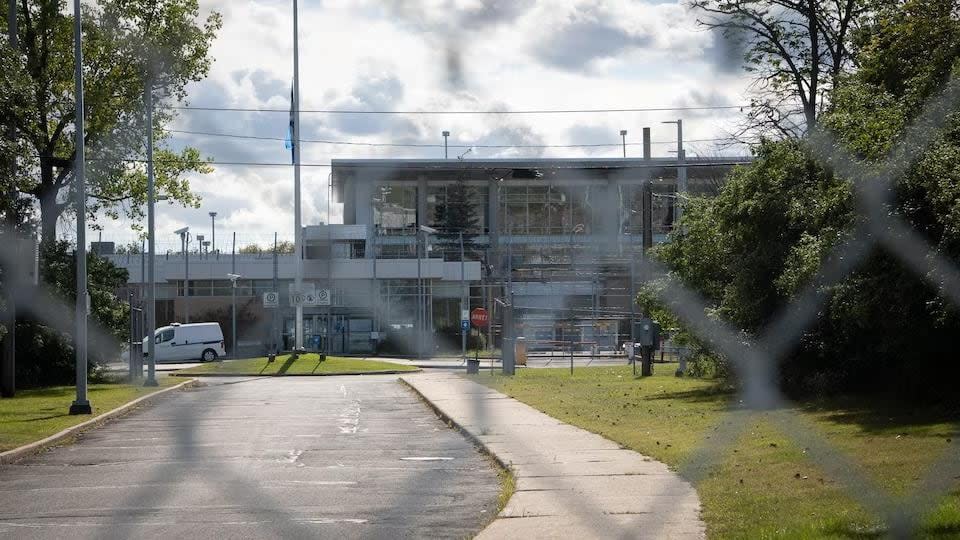


Ali Hijazi’s brother was beaten to death in the Rivière-des-Prairies detention centre in Montreal last week, and now he wants answers.
“He had called us the previous Tuesday to tell us that he would be home soon,” said Hijazi.
“Instead of [us] welcoming him with a good meal, they brought him back to us in a body bag. This makes no sense.”
Hijazi, on behalf of his family, is calling for transparency in the ongoing police investigation.
His brother, Mahdi Hijazi, had previously been in trouble with the law for arson and narcotics possession. The 32-year-old was back behind bars on a provisional basis after being arrested on March 28 in a case involving extortion and lending at a criminal interest rate, also known as loan sharking.
However, he was on the verge of regaining his freedom due to lack of evidence, according to his lawyer, Danièle Roy, who said the Crown had concluded that it was not able to meet the criteria for obtaining a conviction on the extortion charge.
“I therefore had an agreement to have him released on Friday as soon as he pleaded guilty to the usurious lending,” said Roy.
The day before his death on Sept. 10, Mahdi Hijazi called his family in a panic to tell them he was being transferred to a maximum-security sector of the Rivière-des-Prairies detention centre, but he didn’t understand why.
Roy confirmed he was transferred, but she also doesn’t understand the reasoning as he was 48 hours away from being released. He had no charges that required putting him in a maximum-security sector, she said.
“In my 44-year career, I have never seen a virtually free inmate sent to a maximum [security] sector,” said Roy.
Provincial police investigating, decline to comment
The reason for the transfer is still unclear. The Sûreté du Québec (SQ), which is leading the criminal investigation, refused an interview request. Minister of Public Security François Bonnardel’s office also declined to comment.
The head of the guards’ union, Mathieu Lavoie, told Radio-Canada he doesn’t know why the inmate was transferred, but that the criteria for justifying such a decision are clearly defined.
“These are decisions that are based on the behaviour of the inmate. It can change quickly,” said Lavoie, president of the Syndicat des agents de la paix en services correctionnels du Québec.


The Rivière-des-Prairies detention centre is located in Montreal. (Olivier Plante/Radio-Canada)
But the question remains, said Roy, “how can someone be beaten to death in a maximum-security area? Normally, there is more surveillance. Killing someone makes noise. He must have screamed for sure. He probably didn’t die suddenly.”
Lavoie said, unless special measures are taken, people in maximum security have access to their cells, which are not locked at all times, and they can move around freely in the living areas.
The majority of provincial jail cells are double, he said.
“Unfortunately, we cannot have one officer per cell to monitor everyone and there is no surveillance camera that covers all angles,” he said. “Rivière-des-Prairies was built 30 years ago, with the criteria of the time.”
Victim was on ‘path to rehabilitation,’ brother says
Ali Hijazi said his brother deserved a second chance after his criminal past.
“In Quebec, we believe in rehabilitation,” he said. “And I consider that my brother was on the path to rehabilitation. He had completed a course as a car estimator. He was really good. He had his apartment. He paid all his bills. Everything was in order.”


Ali Hijazi says his older brother had a rocky past but was turning his life around and deserved a second chance. (CBC)
Ali Hijazi said his brother had a rocky past, “but that doesn’t mean he deserved to die.”
“We ask for transparency because if it happened to my brother, it could happen to anybody,” he said.
“I need to understand what happened. Not just about his death. I know the cops will do their job. They will find who did it, but I need to understand the other events, like why did he get transferred?”
He said his brother always felt unsafe in the detention centre.
According to data provided by the Ministry of Public Security, there was one murder in Quebec jails in 2020-2021 and another in 2021-2022. Between 2011 and 2020, no murders were recorded, states a report by Observatoire des profilages, a Université du Québec à Montréal (UQAM), a group focused on racial profiling.
In July of last year, a 27-year-old died after being assaulted with a weapon at the Rivière-des-Prairies detention centre.
Lavoie said there has been a noticeable increase in violence between inmates from different groups in recent months.